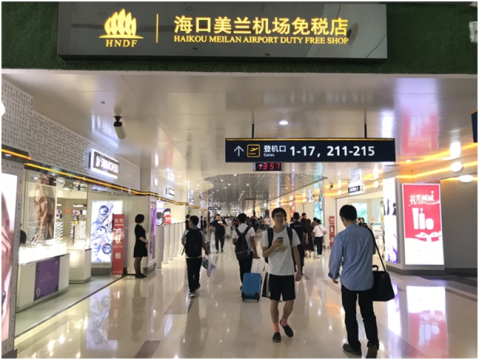China rolls out new measures to further promote reform and opening up
By Hou Lulu, People’s Daily
A draft amendment to the Patent Law was passed at a State Council executive meeting held on Dec. 5. The document will be submitted to the Standing Committee of the National People’s Congress for deliberation. The amendment is expected to enhance punishment on intellectual property infringement.
Over 8,000 kinds of imported products from more than 20 countries and regions are exhibited at Nantong FTZ Overseas Commodity Center in Jiangsu province. (Photo by Xu Congjun/CFP)
The move is an effort by China to further open up and promote reform. The year 2018 marks the 40th anniversary of the country’s reform and opening up. During the past 40 years, China has achieved a miracle in economic growth, and has issued a series of measures at higher levels, so as to realize quality economic growth.
China has largely widened market access. In 2018, the country accelerated its opening up of the insurance industry, eased restrictions on the establishment of foreign financial institutions in the territory and expanded their business scope, as well as opening up more areas of cooperation between Chinese and foreign financial markets.
At an executive meeting of the State Council held on May 30, consensus was reached that the country would fulfill commitments in easing restrictions on foreign investment in manufacturing, including auto-making, ship-building and aircraft.
China has created a more attractive investment environment. Chinese President Xi Jinping once noted that the investment environment is like air, and only fresh air attracts more investment from the outside.
The country’s National Development and Reform Commission and the Ministry of Commerce jointly issued the Special Administrative Measures on Access to Foreign Investment (Negative List) (2018 Version) in late June this year.
The negative list has significantly broadened market access in agriculture, industry and service sectors, introducing a series of significant measures of opening up in such areas as banking, automobile, major railway network, power grid and gas stations.
China has enhanced efforts on intellectual property rights (IPR) protection. By making an amendment to the Patent Law, the country has substantially raised the cap for legal compensation in IPR infringement cases. It also acts tough on counterfeiting activities, applying more severe punishment on the frequently complained IPR issues by foreign investors, such as the infringement of commercial secrets, malicious preemptive registration of trademarks, unfair competition caused by trademark infringement, infringement and counterfeiting of patents, as well as online piracy.
Besides, China has built new platforms for opening up. A total of 12 pilot free trade zones (FTZs) were approved and established in Shanghai, Guangdong, Tianjin and Hainan from Sept. 2013 to Apr. 2018. China supports these pilot FTZs to deepen reform and innovation, and play the role of a test field for free trade and reform.
China will also accelerate the drafting of related policies and institutions for building a free trade port in Hainan in a step-by-step and phased manner, and speed up the exploration of the development of free trade ports with distinct Chinese features, so as to open up new prospects for reform at a higher level.
Tourists crowd tax-free shops in Haikou Meilan International Airport. (Photo from People’s Daily Online)














